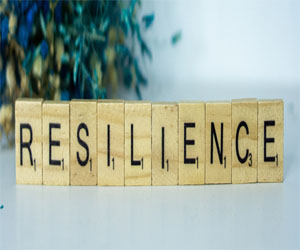



Stress is a ubiquitous part of modern life. Whether it's the demands of a hectic work schedule, personal responsibilities, or unexpected challenges, stress can take a toll on our mental and physical well-being. However, an ancient practice, meditation, has emerged as an effective and accessible method for stress relief. This article explores the benefits of meditation as a stress relief method and how it can be incorporated into your daily life.
Understanding Stress: Stress is the body's natural response to perceived threats or challenges. While this response is crucial for survival, chronic stress can lead to various health issues, including anxiety, depression, high blood pressure, and a weakened immune system. It's essential to find effective ways to manage and alleviate stress.
Meditation As A Stress Relief Method: Meditation is a mental and emotional exercise that focuses on bringing awareness to the present moment. It encourages individuals to let go of the past and future, allowing them to be fully engaged in the here and now. This practice promotes relaxation, reduces the body's stress response, and fosters a sense of calm and balance.
Benefits Of Meditation For Stress Relief:
Reduced Cortisol Levels: Cortisol is a stress hormone produced by the body. Studies have shown that regular meditation can lower cortisol levels, helping to reduce stress and its adverse effects on the body.
Improved Emotional Regulation: Meditation encourages a non-judgmental awareness of emotions. By observing emotions without reacting impulsively, individuals can enhance emotional regulation and reduce the intensity of negative emotions associated with stress.
Enhanced Relaxation: The practice of mindfulness meditation, in particular, triggers the body's relaxation response. By focusing on the breath and the present moment, it reduces stress levels and promotes relaxation.
Improved Mental Clarity: Meditation enhances mental clarity by decluttering the mind. It provides a clear space for focused thinking and problem-solving, which is often hindered by stress.
Emotional Well-Being: Regular meditation can lead to a more positive outlook on life, increased feelings of gratitude, and enhanced emotional well-being, all of which contribute to stress relief.
Incorporating Meditation Into Your Routine:
Start With Short Sessions: If you're new to meditation, start with short sessions, such as 5-10 minutes, and gradually extend the duration as you become more comfortable with the practice.
Choose A Comfortable Location: Find a quiet and comfortable place to meditate where you won't be disturbed. Some prefer a serene natural setting, while others find a quiet corner at home ideal.
Focus On Your Breath: The breath is a common focal point in meditation. Pay attention to your inhalations and exhalations, and if your mind wanders, gently bring your focus back to the breath.
Be Consistent: To experience the full benefits of meditation for stress relief, consistency is key. Try to meditate daily, preferably at the same time, to make it a habit.
Use Guided Meditation: There are many guided meditation apps and recordings available that can help you get started and provide structure to your practice.
Meditation offers a holistic approach to stress relief, addressing both the physical and emotional aspects of stress. By incorporating meditation into your daily routine, you can experience reduced stress levels, improved emotional well-being, and a greater sense of calm and balance in your life.
Effective Strategies For Navigating Life's Challenges
 Effective Resilience Strategies
Effective Resilience Strategies
Develop Emotional Intelligence: Emotional intelligence involves understanding and managing your emotions effectively. It's a foundational skill for resilience, as it allows you to navigate challenging situations with self-awareness and emotional control.
Maintain A Growth Mindset: A growth mindset is the belief that you can learn and grow from experiences, including failures. Embrace challenges as opportunities for growth rather than setbacks, and you'll be better equipped to bounce back.
Cultivate Social Connections: Building a strong support system is vital for resilience. Nurturing positive relationships with friends and family provides emotional support, encouragement, and a sense of belonging during tough times.
Practice Self-Care: Taking care of your physical and mental well-being is essential. Regular exercise, proper nutrition, and adequate sleep contribute to your resilience by strengthening your body and mind.
Set Realistic Goals: Break down your long-term goals into smaller, achievable steps. This approach fosters a sense of accomplishment and progress, boosting your self-esteem and resilience.
Embrace Problem-Solving: Resilient individuals focus on solutions rather than dwelling on problems. When faced with challenges, assess the situation, identify possible solutions, and take action.
Mindfulness And Stress Management: Mindfulness techniques, like meditation and deep breathing, help you manage stress and anxiety. They promote emotional regulation and a sense of calm in the face of adversity.
A Path To Emotional Well-Being
 Understanding Self-Compassion
Understanding Self-Compassion
Self-compassion is a concept developed by psychologist Dr. Kristin Neff and is built upon three core components:
Self-Kindness: Self-compassion involves being warm and understanding toward oneself in moments of difficulty or pain. Instead of harsh self-criticism, individuals practice self-kindness, offering words of comfort and reassurance.
Common Humanity: Recognizing that suffering is a universal human experience is another essential aspect of self-compassion. People often feel isolated in their pain, believing they are alone in their struggles. Self-compassion reminds us that we are not alone; others experience similar challenges.
Mindfulness: Self-compassion encourages individuals to approach their pain and suffering with mindfulness, without judgment. This means being present with one's emotions and experiences, acknowledging them without negative self-talk.
The Benefits Of Self-Compassion
Improved Mental Health: Research has consistently shown that self-compassion is associated with lower levels of depression, anxiety, and stress. By practicing self-compassion, individuals are better equipped to manage difficult emotions and maintain their mental well-being.
A Journey To Authentic Self
 The Importance Of Reconnection
The Importance Of Reconnection
In today's world, external influences can often lead us away from our authentic selves. We may find ourselves trying to conform to societal norms, meet the expectations of others, or follow trends that don't resonate with our true desires. This can result in feelings of disconnection, inner conflict, and a lack of fulfillment.
The Journey To Reconnection
Reconnecting with your essence is a transformative journey. It involves the following steps:
Self-Exploration: Begin by asking deep and meaningful questions about who you are and what truly matters to you. Self-reflection is a powerful tool in understanding your essence.
Identify Your Values: Your values are the core principles that guide your life. Recognizing and living in alignment with your values is essential to reconnecting with your essence.
Let Go Of External Expectations: Release the need to conform to societal or external expectations. Allow yourself to be who you are without fear of judgment.
Embrace Your Passions: Identify your passions and interests. Engage in activities that bring you joy and a sense of fulfillment.
Practice Mindfulness: Mindfulness techniques, such as meditation and deep breathing, can help you stay present and in tune with your inner self.
Acceptance And Self-Love: Accept yourself unconditionally, flaws and all. Self-love is the foundation of authentic self-expression.
Benefits Of Reconnection
Reconnecting with your essence has numerous benefits:
Authentic Living: You will have a deeper understanding of who you are and the ability to live authentically.
Fulfillment: Living in alignment with your essence brings a profound sense of fulfillment and purpose.
Reduced Stress: Letting go of external expectations and living authentically can reduce stress and anxiety.
Finding Tranquility In Scents
 Understanding Aromatherapy
Understanding Aromatherapy
Aromatherapy is an age-old practice that harnesses the therapeutic properties of essential oils, which are concentrated extracts derived from various plants. These oils contain a wide range of natural compounds, each with its unique fragrance and healing potential. When inhaled or applied to the skin, essential oils can have a profound impact on our bodies and minds, making them a valuable tool for managing stress.
Calming The Mind And Body
Aromatherapy promotes stress relief by calming the mind and body. Essential oils such as lavender, chamomile, and bergamot are known for their relaxing and anxiety-reducing properties. The mere inhalation of these fragrances can trigger a sense of calm, slowing the racing thoughts and soothing frayed nerves. This immediate effect on the mind sets the stage for holistic stress relief.
Physical Relaxation
Stress often manifests physically, leading to tense muscles, headaches, and other discomforts. Aromatherapy can alleviate these physical symptoms by encouraging relaxation. Oils like eucalyptus and peppermint can ease muscle tension and relieve headaches, providing a sense of physical well-being that complements the emotional aspect of stress relief.
 One of the primary benefits of mindfulness is its ability to reduce stress. Mindful meditation and breathing techniques can help individuals manage the overwhelming stressors of modern life. By focusing on the present moment, individuals can break free from the cycle of worry about the future or dwelling on the past. This mental shift allows them to experience a sense of calm and relaxation, reducing their stress levels.
One of the primary benefits of mindfulness is its ability to reduce stress. Mindful meditation and breathing techniques can help individuals manage the overwhelming stressors of modern life. By focusing on the present moment, individuals can break free from the cycle of worry about the future or dwelling on the past. This mental shift allows them to experience a sense of calm and relaxation, reducing their stress levels.
Furthermore, mindfulness promotes mental clarity and emotional balance. In a world filled with distractions, our minds can become cluttered, making it difficult to concentrate and find inner peace. Mindfulness helps in decluttering the mind and provides a clear space for focused thinking. It also allows individuals to observe their emotions without reacting impulsively, fostering emotional stability and resilience.
Meditation, a core component of mindfulness, is a practice that enables individuals to delve deep into their inner selves. Through regular meditation, people can develop a better understanding of themselves and their thought patterns. This self-discovery is instrumental in cultivating inner peace. By recognizing their thought patterns and emotional responses, individuals can make conscious choices about how they react to various situations, leading to a greater sense of control and inner harmony.
Mindfulness is not limited to the individual; it also extends to the way we connect with the world. By being present and fully engaged in our interactions and surroundings, we foster a deeper connection with the people and environment around us.